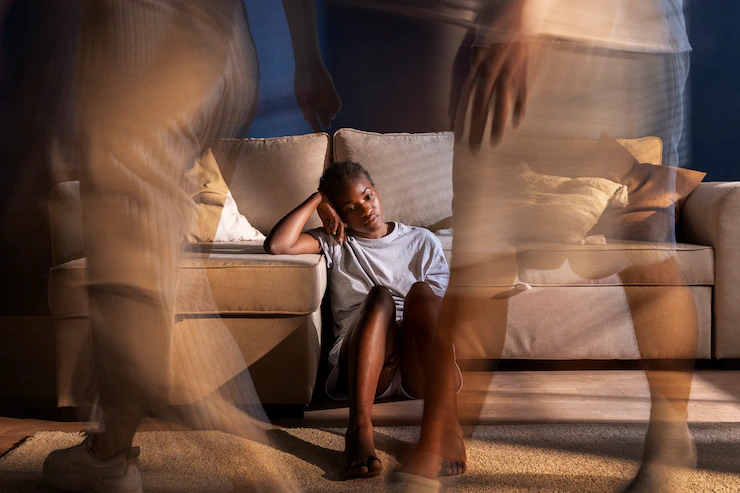Childhood is a critical period in a person’s development, shaping their beliefs, behaviors, and relationships in adulthood. Unfortunately, not all childhood experiences are positive, and those who have experienced trauma during their formative years may face unique challenges in their adult relationships. Childhood trauma can have a profound impact on how individuals form and maintain connections, affecting their emotional well-being, trust, and ability to establish healthy boundaries. Understanding this impact is crucial in navigating and healing from the effects of childhood trauma in adult relationships.
Childhood trauma can take various forms, including physical, emotional, or sexual abuse, neglect, witnessing domestic violence, or experiencing the loss of a loved one. These experiences can significantly disrupt a child’s sense of safety, security, and trust in others. When carried into adulthood, the effects of childhood trauma can manifest in different ways within relationships.
One of the most common impacts of childhood trauma on adult relationships is difficulty with trust. Survivors of trauma may struggle to trust others, fearing vulnerability and the potential for further harm. Trust issues can lead to challenges in forming intimate connections, as individuals may be guarded, hypervigilant, or prone to self-protective behaviors. Building trust in relationships becomes a gradual process that requires patience, understanding, and open communication.
Another impact of childhood trauma is the development of attachment styles that influence how individuals relate to their partners. For example, individuals with an anxious attachment style may seek excessive reassurance and validation, fearing abandonment or rejection. Those with an avoidant attachment style may struggle with intimacy and emotional closeness, often distancing themselves from their partners to protect themselves from potential emotional harm. These attachment patterns can create dynamics that are challenging to navigate in adult relationships, requiring both partners to be aware of and work through these patterns together.
Childhood trauma can also impact an individual’s ability to establish and maintain healthy boundaries. Boundaries are essential for maintaining autonomy, self-esteem, and emotional well-being. Trauma survivors may have had their boundaries violated in the past, leading to confusion or difficulty in setting boundaries in relationships. They may struggle with asserting their needs, saying “no,” or recognizing when their boundaries are being crossed. Learning to establish and communicate boundaries becomes an essential part of healing and cultivating healthy relationships.
Moreover, childhood trauma can have long-lasting effects on emotional regulation and communication skills. Trauma survivors may experience heightened emotional reactivity, difficulty managing conflict, or a tendency to withdraw or shut down in response to triggering situations. These challenges can impact the quality of communication within relationships, making it essential for partners to cultivate empathy, patience, and supportive communication techniques to foster understanding and emotional safety.
While the impact of childhood trauma on adult relationships can be significant, it is crucial to remember that healing and growth are possible. Seeking professional help, such as therapy or counseling, can provide individuals with the tools and support needed to navigate the effects of trauma in their relationships. Therapy offers a safe space to process past experiences, explore coping strategies, and develop healthier relationship dynamics.
Additionally, self-care and self-compassion are vital components of healing from childhood trauma. Engaging in activities that promote emotional well-being, practicing self-reflection, and surrounding oneself with a supportive network of friends and loved ones can aid in the healing process.
In conclusion, childhood trauma can leave a lasting impact on adult relationships, affecting trust, attachment styles, boundaries, emotional regulation, and communication. Understanding and addressing these effects is essential for individuals who have experienced trauma and their partners. With patience, empathy, and a commitment to healing, it is possible to build healthier, more fulfilling relationships and break free from the cycle of trauma.










